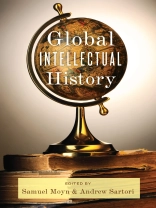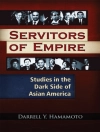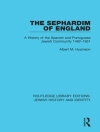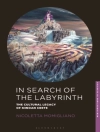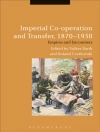Where do ideas fit into historical accounts that take an expansive, global view of human movements and events? Teaching scholars of intellectual history to incorporate transnational perspectives into their work, while also recommending how to confront the challenges and controversies that may arise, this original resource explains the concepts, concerns, practice, and promise of ‘global intellectual history, ‘ featuring essays by leading scholars on various approaches that are taking shape across the discipline.
The contributors to Global Intellectual History explore the different ways in which one can think about the production, dissemination, and circulation of ‘global’ ideas and ask whether global intellectual history can indeed produce legitimate narratives. They discuss how intellectuals and ideas fit within current conceptions of global frames and processes of globalization and proto-globalization, and they distinguish between ideas of the global and those of the transnational, identifying what each contributes to intellectual history. A crucial guide, this collection sets conceptual coordinates for readers eager to map an emerging area of study.
Содержание
Preface
Part I. A Framework for Debate
1. Approaches to Global Intellectual History (Samuel Moyn and Andrew Sartori)
Part II. Alternative Options
2. Common Humanity and Cultural Difference on the Sedentary–Nomadic Frontier: Herodotus, Sima Qian, and Ibn Khaldun (Siep Stuurman)
3. Cosmopolitanism, Vernacularism, and Premodernity (Sheldon Pollock)
4. Joseph Banks’s Intermediaries: Rethinking Global Cultural Exchange (Vanessa Smith)
5. Global Intellectual History and the History of Political Economy (Andrew Sartori)
6. Conceptual Universalization in the Transnational Nineteenth Century (Christopher L. Hill)
7. Globalizing the Intellectual History of the Idea of the ‘Muslim World’ (Cemil Aydin)
8. On the Nonglobalization of Ideas (Samuel Moyn)
9. ‘Casting the Badge of Inferiority Beneath Black Peoples’ Feet’: Archiving and Reading the African Past, Present, and Future in World History (Mamadou Diouf and Jinny Prais)
10. Putting Global Intellectual History in Its Place (Janaki Bakhle)
11. Making and Taking Worlds (Duncan Bell)
Part III. Concluding Reflections
12. How Global Do We Want Our Intellectual History to Be? (Frederick Cooper)
13. Global Intellectual History: Meanings and Methods (Sudipta Kaviraj)
List of Contributors
Index
Об авторе
Samuel Moyn is a professor in the Department of History at Columbia University. He is the editor of Pierre Rosanvallon’s Democracy Past and Future and the author of The Last Utopia: Human Rights in History.Andrew Sartori is associate professor of history at New York University. He is the author of Bengal in Global Concept History: Culturalism in the Age of Capital and the coeditor of From the Colonial to the Postcolonial: India and Pakistan in Transition.
